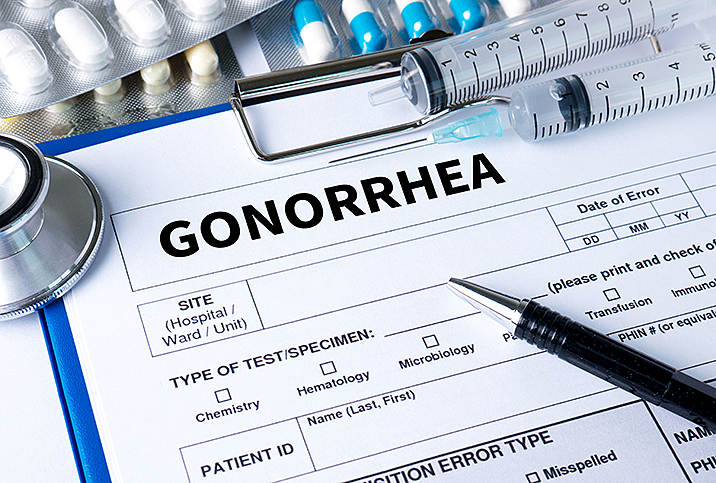Men May Benefit From Post-Exposure Prophylactic Antibiotics

Many common sexually transmitted infections (STIs) are easy to treat with medications. But what if there was a medication you could take to avoid getting an STI in the first place?
That possibility may actually be very real. A new study suggests that taking a single dose of an inexpensive, common antibiotic—a post-exposure prophylactic (PEP)—within three days of having condomless sex could help prevent three common STIs: chlamydia, gonorrhea and syphilis.
The drug, doxycycline, is most commonly used in the treatment of Lyme disease, rosacea and severe acne. It also prevents malaria. Now research has shown it can reduce the risk of chlamydia and gonorrhea by more than 60 percent as well.
Doxycycline as an STI preventive measure
The primary bacterial STIs are gonorrhea, chlamydia and syphilis. Despite sharing the same classification, though, each has different treatment options. Gonorrhea is typically treated with ceftriaxone, which is not available in oral form. Oral options were previously available, but over time, resistance has made them less effective, according to Sarah Lofgren, M.D., an assistant professor at the University of Minnesota Medical School.
Syphilis, on the other hand, generally requires a penicillin injection to cure.
Chlamydia is interesting. Like gonorrhea, it is caused by a gram-negative diplococcus—a round bacterium that typically occurs in the form of two joined cells—but it has a fair number of oral options for treatment. They include azithromycin and, notably, doxycycline.
Doxycycline has been available for 45 years and usually has few side effects beyond an upset stomach and an increased sensitivity to sunlight.
In fact, doxycycline was the focus of a 2015 study in which it was used as pre-exposure prophylaxis (PrEP) for men who have sex with men (MSM). At the time, researchers noted how successful antiretrovirals were at reducing the transmission of HIV from infected partners to uninfected partners, so the study's authors similarly tested the efficacy of doxycycline as PrEP and found it significantly reduced the contraction of all three bacterial STIs.
The new study took those findings and applied them to the use of doxycycline as PEP (DoxyPEP). Like the previous study, it also focused primarily on MSM communities.
Looking for new ways to prevent STIs in MSM communities
Obviously, STIs are not a purely male problem nor are they prevalent only in MSM communities. So why are these studies focused on that population?
"I think we're a bit of the victims of our own success," said John Goldman, M.D., an infectious disease specialist with UPMC in Pittsburgh.
As a professional who specializes in infectious disease treatment, Goldman has seen firsthand the benefits of modern-day HIV treatment options. The most notable is that people with HIV can actually manage it and live prosperous lives. That's a stark contrast to the situation at the height of the AIDS epidemic.
However, this progress has also led to an increase in other STIs among MSM communities. In a way, it's a double-edged sword. Men no longer have to fear that HIV is a death sentence, but they are also having more condomless sex, thus, contracting STIs at a higher rate.
"Please don't misinterpret this," Goldman said. "I was treating HIV before the advent of highly active antiretroviral therapy and I would much rather treat STDs than HIV.
"I can cure gonorrhea and syphilis, and I can cure them easily and cheaply," he added. "I can't cure HIV, and it's a long-term treatment. But I think with the perception of HIV being a manageable and preventable disease, we have seen higher rates of risky behavior in the MSM community."
Those higher rates of risky behavior are precisely why researchers have been looking into PrEP and PEP options such as doxycycline. If they can reduce the risk of spreading common STIs as effectively as antiretrovirals reduce the risk of spreading HIV, STI rates in MSM communities will likely drop substantially.
"For HIV, the medications are becoming injectable both for treatment and prevention," Lofgren said. "One would need less frequent shots, such as monthly or bimonthly. Likely, they will become less frequent."
All of this is certainly good news for the MSM community, or for anyone with an active sex life.
The risks of doxycycline as STI post-exposure treatment
The primary concern some researchers have regarding doxycycline's use in PEP treatment is that a patient's tolerance for the drug could increase over time. If so, it would be less effective as a treatment option for both STIs and other conditions.
For example, some researchers are worried about this scenario: Someone takes doxycycline frequently after sex but later contracts Lyme disease. Doxycycline may not be effective against the new case of Lyme disease.
"Few drugs are as well tolerated and lacking in the need for monitoring as doxycycline," Lofgren said. "The concern for resistance is for a specific pathogen. You don't usually have Lyme in your body, so it should still work. For acne, your skin flora might become resistant for doxycycline if you used it often.
"However, doxycycline also has some immunoregulatory changes that might make it still helpful for acne," she added.
Ultimately, many experts agree that the benefits of using doxycycline for STI protection outweigh the risks, and some physicians have already started prescribing it to MSM patients.
Research into this drug and the use of similar antibiotics continues, which may lead to even more preventive and protective treatment options.
The first step toward treatment is a consultation with a healthcare professional, and video visits have become a viable option for most people. Visit Giddy telehealth to get connected.


















